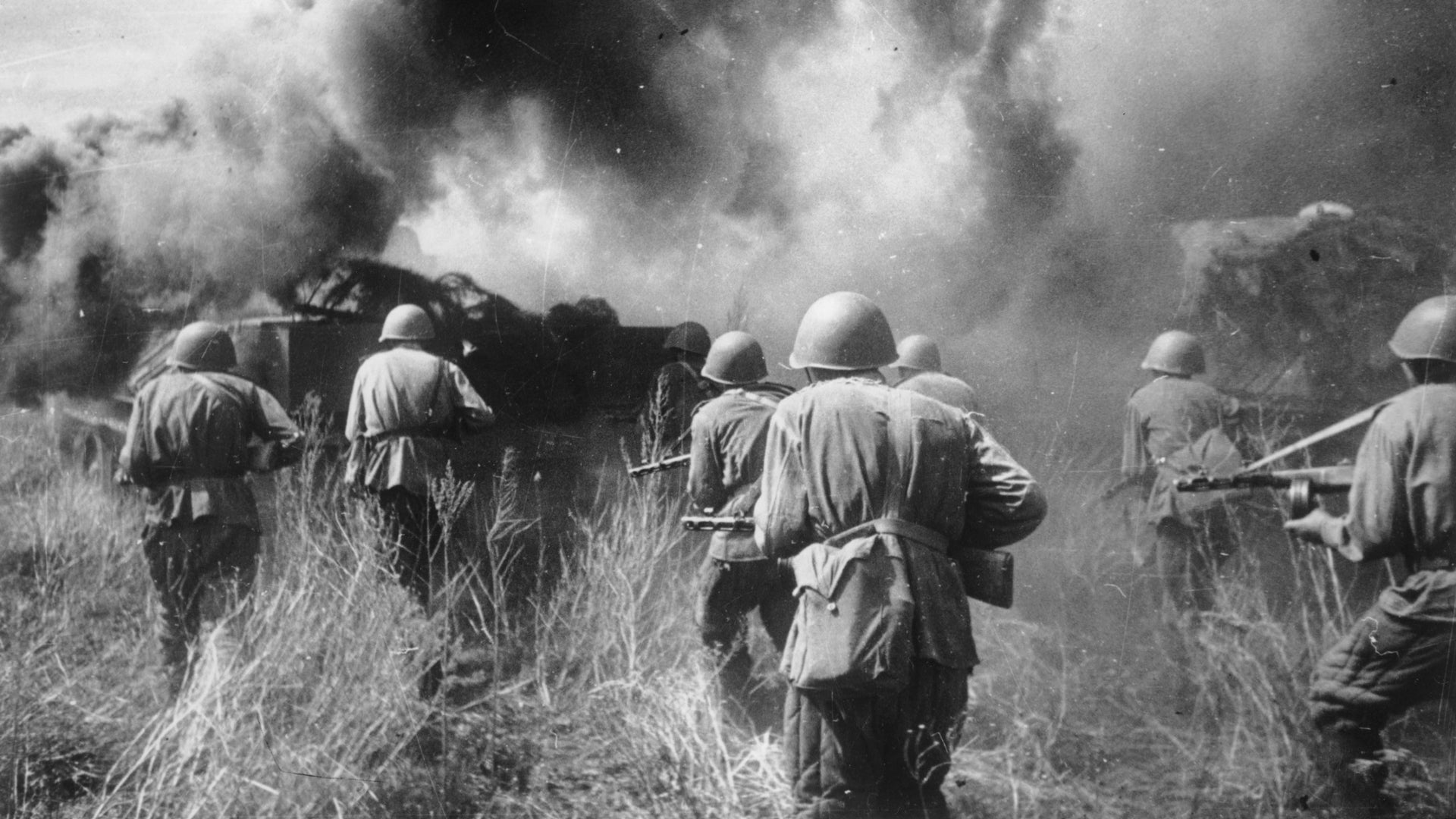Introduction
The Second World War (1939-1945) was the most devastating global conflict in human history, involving more than 30 countries and resulting in 70-85 million fatalities. Its impact continues to shape international relations, borders, economies, and cultural attitudes to this day.
1Origins and Causes
World War II's roots can be traced to the aftermath of World War I. The Treaty of Versailles imposed harsh penalties on Germany, creating economic hardship and resentment. This environment fostered the rise of Adolf Hitler and the Nazi Party, who promoted nationalism, militarism, and anti-Semitism. Meanwhile, Japan's imperial ambitions in Asia, Italy's fascist government under Benito Mussolini, and the Great Depression all contributed to global instability.
The war officially began on September 1, 1939, when Nazi Germany invaded Poland, prompting declarations of war from Great Britain and France. However, conflicts had already been brewing in Asia since 1937, when Japan invaded China.
2Major Turning Points
Several key events changed the course of the war. The Japanese attack on Pearl Harbor on December 7, 1941, brought the United States into the conflict. The Battle of Stalingrad (1942-1943) marked the first major German defeat and the turning point on the Eastern Front. D-Day, the Allied invasion of Normandy on June 6, 1944, opened a crucial second front against Nazi Germany in Western Europe.
In the Pacific Theater, the Battle of Midway in June 1942 dealt a severe blow to Japanese naval power. These pivotal moments shifted the momentum in favor of the Allied Powers—primarily the United States, Great Britain, and the Soviet Union—against the Axis Powers of Germany, Italy, and Japan.
3Human Cost and Atrocities
Beyond the battlefield, World War II was characterized by unprecedented brutality against civilian populations. The Holocaust, Nazi Germany's systematic genocide of six million Jewish people and millions of others—including Roma, homosexuals, people with disabilities, and political opponents—stands as one of history's most horrific crimes.
Japan's occupation of China and much of Southeast Asia was marked by severe atrocities, including the Nanjing Massacre. Allied bombing campaigns of German and Japanese cities, culminating in the atomic bombings of Hiroshima and Nagasaki, showed how technological advances had made warfare increasingly devastating for civilian populations.
4Leadership and Strategy
The war highlighted the importance of leadership and strategic thinking. Winston Churchill's defiant leadership kept British morale high during the darkest days. Franklin D. Roosevelt mobilized American industrial might, turning the United States into what he called the "Arsenal of Democracy." Joseph Stalin led the Soviet Union through enormous sacrifices, with an estimated 27 million Soviet citizens perishing during the conflict.
On the Axis side, Hitler's strategic blunders—particularly the invasion of the Soviet Union and declaration of war against the United States—ultimately doomed Nazi Germany. Japan's failure to anticipate the industrial capacity of the United States similarly undermined its war effort.
5Technological Advancements
World War II accelerated technological development across multiple fields. The conflict saw the introduction of radar, jet engines, guided missiles, and nuclear weapons. Advances in medicine, including the mass production of penicillin, saved countless lives. The code-breaking efforts at Bletchley Park, particularly Alan Turing's work on the Enigma code, laid foundations for modern computing.
These innovations not only influenced the outcome of the war but continued to shape the postwar world. The atomic bomb, in particular, ushered in a new era of international relations dominated by the threat of nuclear annihilation.
6Aftermath and Legacy
The war's conclusion in 1945 reshaped the world order. The United Nations was established to prevent future conflicts. Europe was divided between Western democracies and Soviet-dominated communist states, leading to the Cold War. Decolonization movements accelerated as European powers, weakened by the war, lost their grip on overseas territories.
The war also prompted significant social changes. Women's participation in the workforce during wartime challenged traditional gender roles. The Holocaust led to increased awareness of human rights and eventually to the creation of the State of Israel. The economic boom that followed in many Western countries created new standards of living and consumption patterns.
7World War II in Popular Memory
Perhaps uniquely among historical events, World War II continues to occupy a central place in global popular culture. Books, films, television series, and video games keep the war's memory alive for generations born long after 1945. In many countries, it represents a "good war" where moral choices seemed clearer than in later conflicts.
Educational games like Histodle help new generations engage with this critical historical period, testing their knowledge of key dates, figures, and events in an interactive format. Understanding World War II remains essential for comprehending the contemporary world and its challenges.
8Conclusion
World War II stands as the defining event of the 20th century, reshaping global politics, economies, societies, and technologies. Its lessons about the dangers of unchecked aggression, totalitarianism, and racism remain relevant today. By studying this complex conflict through various means—including traditional education, museums, memorials, and interactive formats like historical guesser games—we ensure that its profound impacts and sobering lessons are not forgotten.
